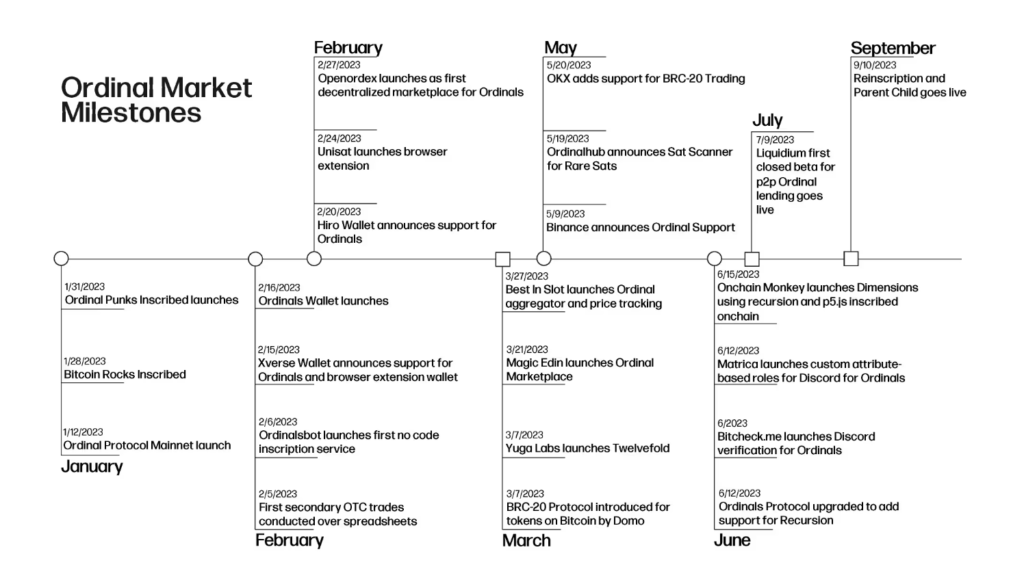[ad_1]
Bitcoin has become a significant player in the NFT ecosystem. Over the first 200 days since the inaugural inscription, 1.14 million image-based inscriptions have been created on the Bitcoin network, according to a new report by Galaxy Research. This figure surpasses the total number of NFTs minted on other major blockchain networks like Ethereum, Solana, and Polygon during their initial 200-day periods.
What are Bitcoin Ordinals?
In January 2023, software engineer Casey Rodarmor unveiled the Ordinals protocol, a tool for directly embedding data onto the Bitcoin blockchain. The protocol facilitates the incorporation of data into satoshis—the tiniest Bitcoin unit valued at 0.00000001 BTC. This act of embedding is termed “inscription,” and the data can vary from images and videos to audio and text. Essentially, these inscribed satoshis give rise to digital artefacts native to the Bitcoin ecosystem, also known as Bitcoin NFTs.

Trading Volume and Market Dynamics
From January 1 to September 1, the overall trading volume for Ordinals on Bitcoin amounted to $596.4 million. This makes Bitcoin the third most popular network for NFT trading by volume, trailing behind Ethereum and Solana. Notably, the activity surrounding Ordinals has led to the most extended period of uncleared pending Bitcoin transactions since 2021.
Even when BRC-20 tokens are excluded from Bitcoin’s total Ordinal volume, Bitcoin remains in the third spot for digital collectible activity. Data reveals that the top 50 BRC-20 tokens comprised only 30% of all Ordinals volume.
Dominant Marketplaces and Emerging Technologies
The dominant platforms for Ordinals trading, measured by daily volume, are Magic Eden, Unisat, and OKX. These platforms claim market shares of 20%, 34%, and 44%, respectively. On another front, demand for Ordinals inscribed on rare satoshis is increasing, bolstered by the introduction of robust frameworks for assessing satoshi rarity and specialized marketplaces for rare sats.
A noteworthy innovation is the advent of Recursion. This technique allows inscribers to construct Ordinals exceeding the standard 4MB block size limit. This allows for creating high-resolution artwork at a fraction of the cost usually required for minting inscriptions.
Conclusion
Last month, the Ordinals Summit 2023 attracted more than 400 aficionados and specialists worldwide, concentrating on the realm of Ordinals. The summit showcased a range of pivotal revelations and progress, featuring diverse panel talks, keynote addresses, an art showcase, and an unexpected appearance by a prominent individual.
Bitcoin’s growing involvement in the NFT sector signifies a vital evolution for digital collectibles, introducing new market dynamics and technological innovations. With a considerable trading volume and the advent of Recursion, Bitcoin seems poised to continue its influential role in the NFT landscape.
[ad_2]
By: Pete Harper
nftnewstoday.com






